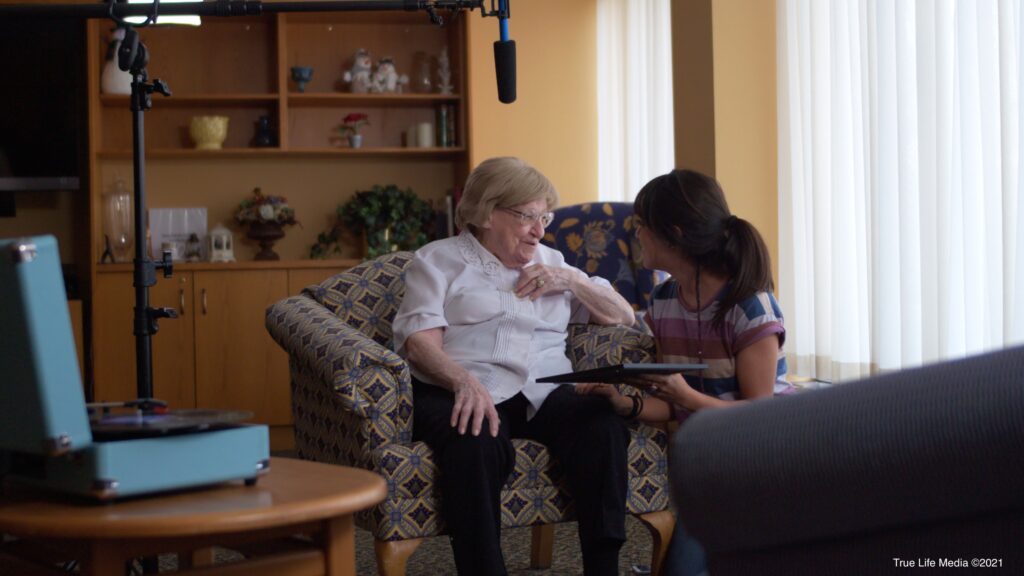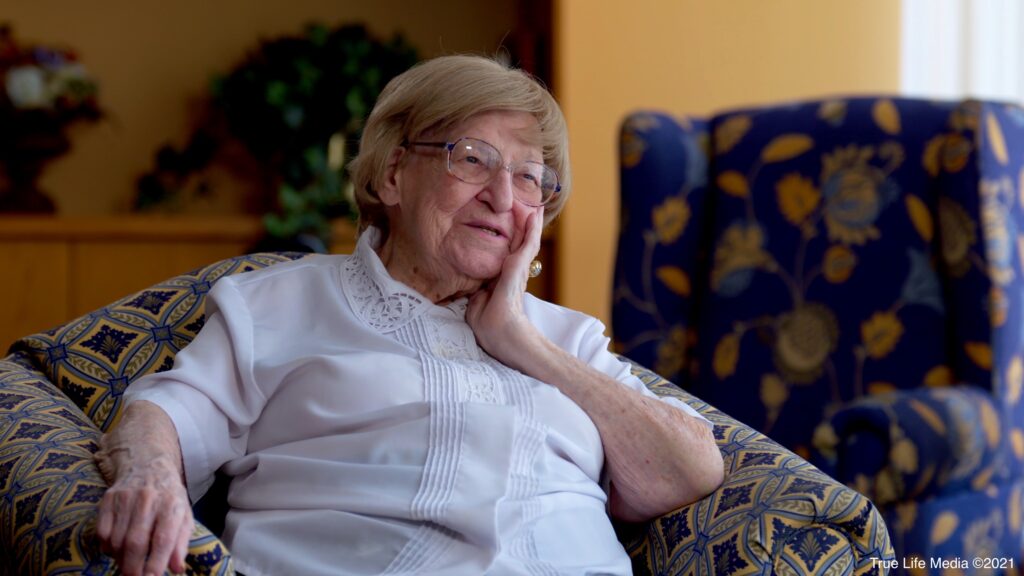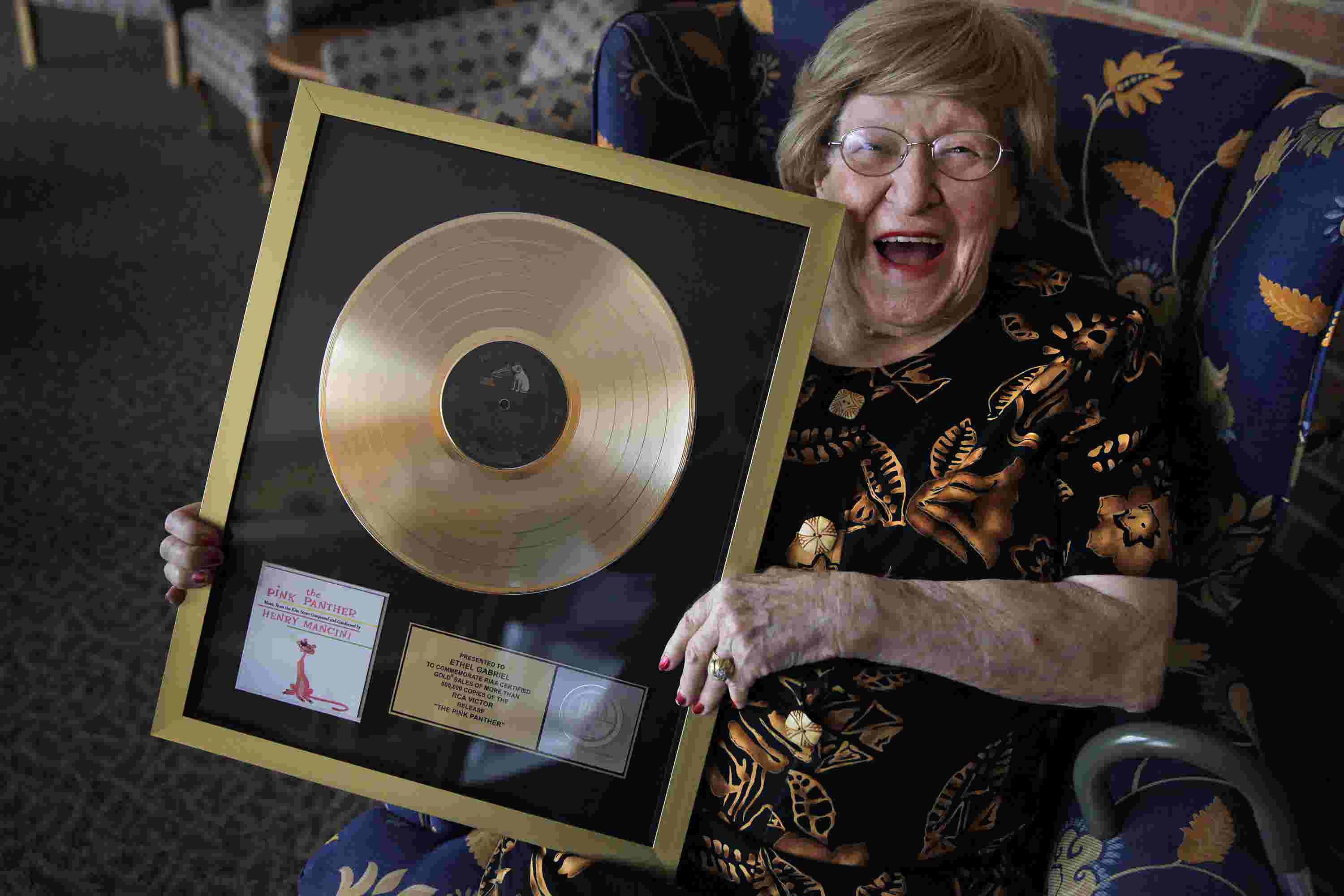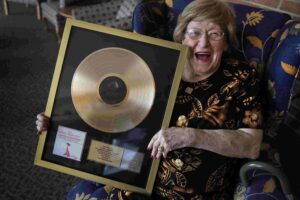The Ethel Gabriel Scholarship
Applications for 2021 will open on June 1, 2021.
We are proud to recognize Ethel’s contributions to the music industry and for paving the way for future generations of women working in music production.
In honor of Ethel Gabriel, SoundGirls will be awarding two $500 scholarships to members pursuing a career in the recording arts. These scholarships will be awarded in August 2021 and can be used for educational training and university programs. The scholarships are open to all members of SoundGirls.
WHO IS ELIGIBLE?
Any member of SoundGirls that is attending or plans to attend educational programs in Professional Audio. There is no age requirement and includes college programs, trade schools, seminars, and workshops. Applications are open to all genders and non-conforming genders.
HOW TO APPLY
The application includes two short essay questions:
- Why you are applying for this scholarship;
- How has Ethel Gabriel inspired you? (400-600 words, please.)
- Application opens June 1, 2021 – Apply Here
DEADLINE FOR SUBMISSION
The essay submission deadline is 12:00 midnight EDT July 30, 2021. The scholarships will be awarded in August 2021, and paid to scholarship winners. Scholarship winners will be required to send proof of enrollment in the educational program to SoundGirls or scholarship money must be returned.
SELECTION PROCESS & NOTIFICATION
The SoundGirls Board will review essays and will notify the winners via email.
ADDITIONAL DETAILS
The scholarship funds awarded can be used for educational programs related to professional audio. Scholarships are non-renewable. You will need to submit proof of enrollment in a program.
QUESTIONS?
Any questions on the scholarship essay can be directed to soundgirls@soundgirls.org.
About Ethel Gabriel
Ethel Gabriel may be one of the most prolific music producers you’ve never heard of. Ethel had a 4-decade career at RCA starting with an entry-level job and rising up to become the first female record producer for a major record label and an executive role in A&R.
During her career, Ethel produced over 5,000 records and worked with a wide variety of artists on RCA’s roster including Elvis Presley. Ethel was willing to take risks – such as producing the first digitally-remastered album or working with artists who brought new types of music to the mainstream. Her credits include everything from mambo to easy listening to rap.
Ethel’s Background
Ethel was born in 1921 in Pennsylvania. She started her own dance band at age 13 (called “En and Her Royal Men”) where Ethel played trombone. She originally wanted to go to college for forestry (at the encouragement of her father) but women were not allowed into the program. She decided to attend Temple University (Philadelphia, PA) and study music education.
A relative helped Ethel get a job at RCA’s record plant (in Camden, New Jersey) to help pay for tuition and expenses. Ethel’s first job included tasks like putting labels on records. She was promoted to record tester where she had to listen to one out of every 500 records pressed for quality. She learned every note of the big hits since Ethel had to listen to them over and over.
Ethel would hang out at the nearby RCA recording studios (and brought her trombone with her to play between sessions). She got to play with some major artists for fun and also learn how the engineers and producers worked. She also spent a lot of time in the studio as secretary to the manager of A&R at the time, Herman Diaz, Jr. Ethel got to produce her first session (with bandleader Elliot Laurence) when Diaz called in sick and asked her to do it.
In 1955, Ethel convinced her boss, Manie Sacks, to sign Perez Prado to RCA’s label. She produced his record, Cherry Pink and Apple Blossom White, which became a worldwide hit and helped bring the mambo craze to the US.
She was with RCA during the creation of their Nashville studios, the signing of Elvis, and their transition from mono to stereo.
Through Ethel’s career, she was willing to take risks and experiment with new technology or music. In 1959, Ethel launched Living Strings, a series on RCA Camden’s label that ran for 22 years.
In 1961, she produced Ray Martin and his Orchestra Dynamica, the first release using RCA’s “Stereo Action.” In 1976, she was executive producer of Caruso,’s A Legendary Performer, the first digitally-remastered album. The technology used by Soundstream Inc (lead by Thomas Stockham) has gone on to be widely used in audio and photography restoration and Stockham’s work on the Caruso album was the basis for a 1975 scientific paper. In 1975, Ethel gave a chance to then-unknown producer Warren Schatz, who produced RCA’s first disco album, Disco-Soul by The Brothers.
Ethel also helmed RCA’s Camden label (designed for budget records). Camden was struggling when she took over in 1961 and had a sales volume increase of 100% over two years. Camden went on to become a multi-million dollar label under Ethel’s watch. Some of RCA’s major artists even asked to be released on the Camden line over the flagship RCA label because of Camden’s success.
During her career, Ethel received two RIAA Platinum records and 15 Gold records (over 10 million record sales) and her albums continue to sell. Many of these were repackages or re-releases where Ethel put her expert eyes (and ears) on song selection and label redesign. One album she re-packaged, Elvis’ Christmas Album, was the first Elvis record to reach Diamond (10 million sales). Ethel said of creating special packages (in Billboard Magazine Sept 5, 1981), “It’s like second nature to me. The secret is that you know the market you’re trying to reach. You can’t contrive a special record. It has to be genuine and full of integrity because people know the difference.” Ethel re-issued albums for nearly every RCA artist (including the Legendary Performer series, RCA Pure Gold economy line, and the Bluebird Complete series).
 Towards the end of her time at RCA, Ethel asked the company to fund a women’s group for lectures and seminars. She wanted to help women learn to become executives. Ethel said she felt like a mother to some of the women she mentored (Ethel was married but did not have children). She wanted to teach skills like how to network, how to dress or behave. Ethel also became involved with Women in Music, one of very few groups available to women in the music industry at the time. In 1990, Ethel publicly spoke out against the “boys club” in a Letter to the Editor of Billboard Magazine (Oct 6). She said, “Yes, there are ‘record women’ in the industry – and they have ears, too!”
Towards the end of her time at RCA, Ethel asked the company to fund a women’s group for lectures and seminars. She wanted to help women learn to become executives. Ethel said she felt like a mother to some of the women she mentored (Ethel was married but did not have children). She wanted to teach skills like how to network, how to dress or behave. Ethel also became involved with Women in Music, one of very few groups available to women in the music industry at the time. In 1990, Ethel publicly spoke out against the “boys club” in a Letter to the Editor of Billboard Magazine (Oct 6). She said, “Yes, there are ‘record women’ in the industry – and they have ears, too!”
 Ethel also worked with many artists and ensembles in the studio during her career including Chet Atkins, Caterina Valenti, Marty Gold, Los Indios Tabajaras, Teresa Brewer and the entire Living series recordings. She said of working with artists, “There are times to ‘harness’ artists and times to ‘push.’” Ethel said her most helpful qualifications to do the job were “her knowledge and love of music and her ability to make difficult decisions and hold to them.” (Cincinnati Enquirer August 18, 1983)
Ethel also worked with many artists and ensembles in the studio during her career including Chet Atkins, Caterina Valenti, Marty Gold, Los Indios Tabajaras, Teresa Brewer and the entire Living series recordings. She said of working with artists, “There are times to ‘harness’ artists and times to ‘push.’” Ethel said her most helpful qualifications to do the job were “her knowledge and love of music and her ability to make difficult decisions and hold to them.” (Cincinnati Enquirer August 18, 1983)
Ethel was not promoted to Vice President at RCA until 1982, over 40 years into her career. Many colleagues said it was long overdue. The following year, she won a Grammy for Best Historical Album (for co-producing The Dorsey/Sinatra Sessions). After leaving RCA, Ethel remained in the industry where she worked as president and vice president to smaller record labels.

